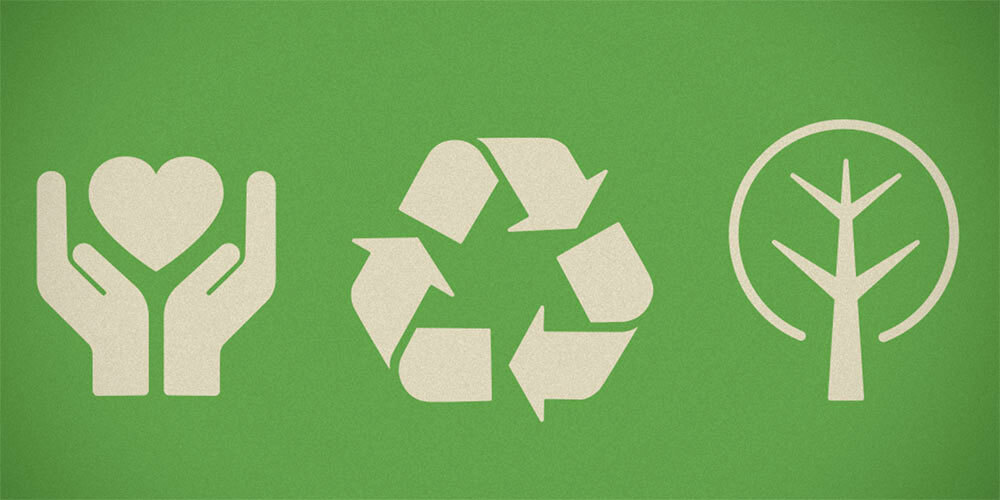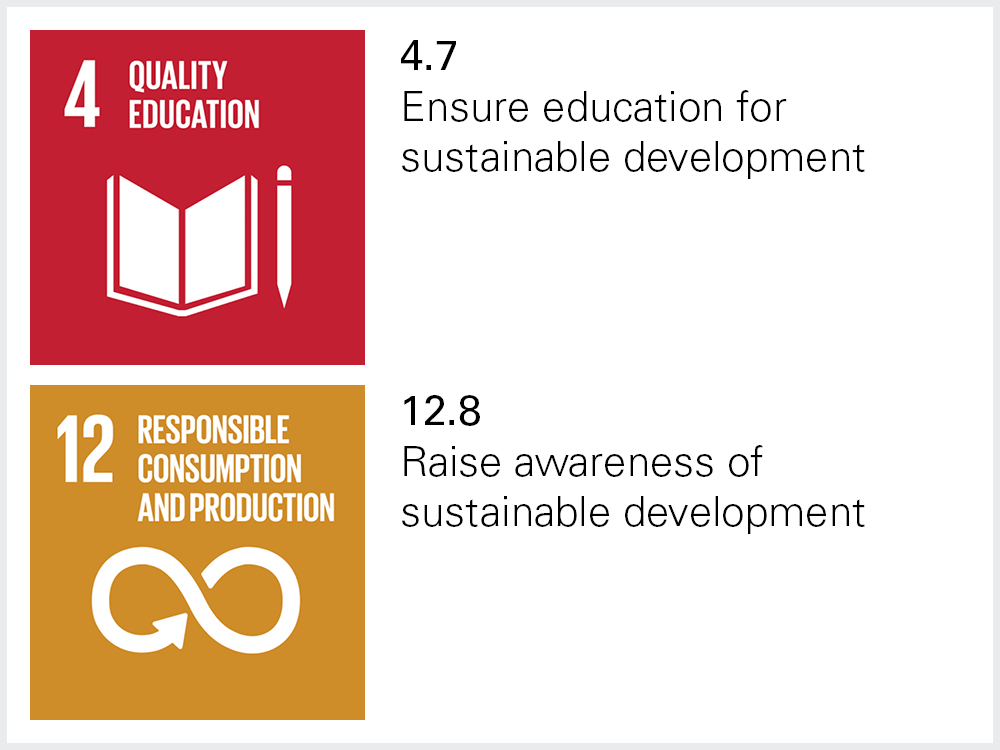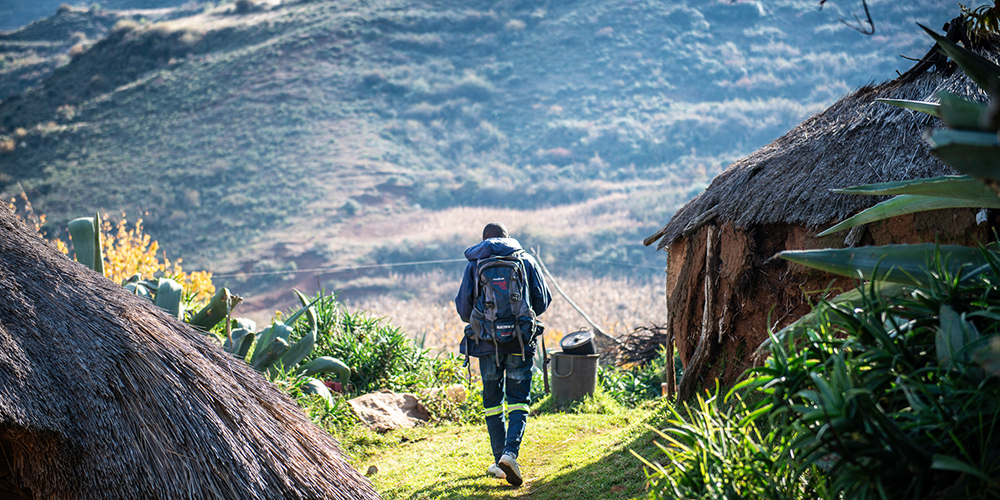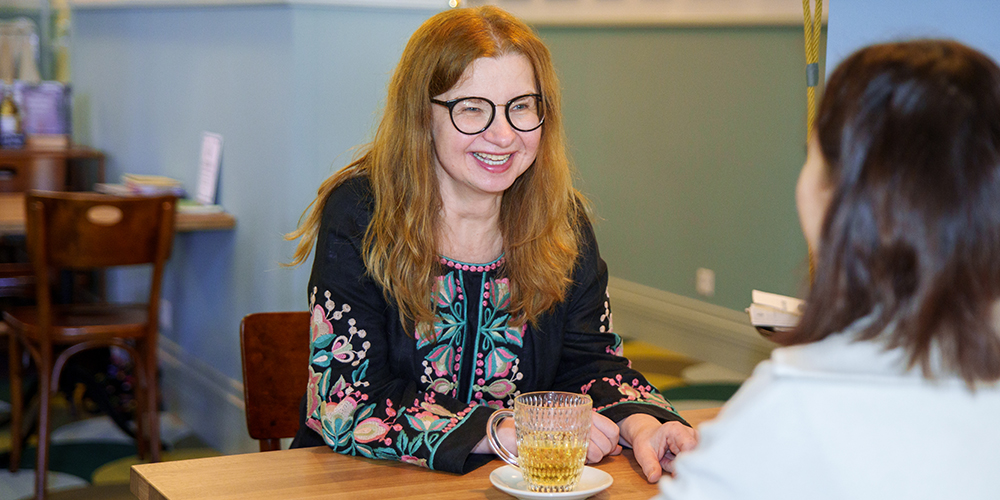Teaching
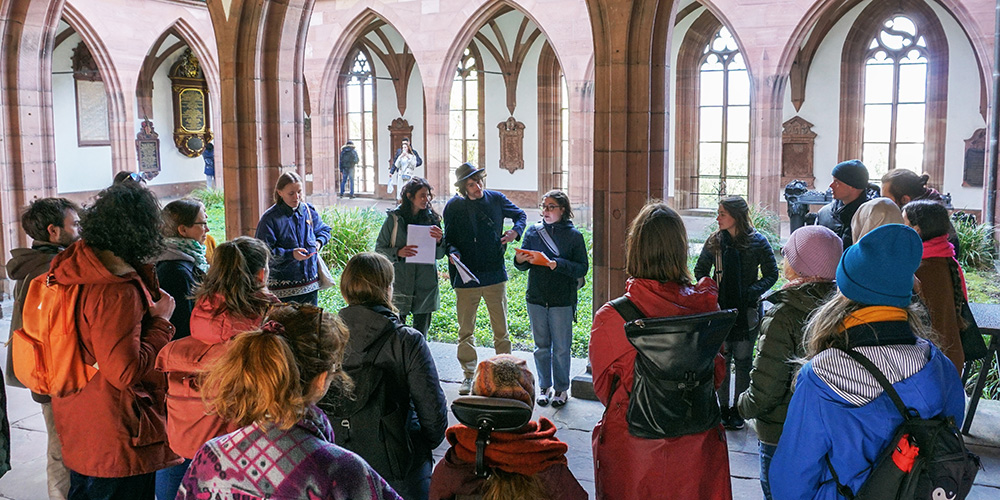
Sustainability is an important part of the University of Basel's teaching program, not just in the sustainability-related courses and programs. The impulse funding once again supported the implementation of project-oriented courses. In collaboration with the Eucor and EPICUR partner universities, several transnational courses were also offered. In addition, lecturers developed a public online course that takes an interdisciplinary look at Switzerland's energy system from a sustainability perspective.
Sustainable teaching with Eucor & EPICUR
The hybrid block seminar "Sustainable Cities? Exploring Your City Through the Lens of the Sustainable Development Goals" held at the University of Basel in February 2024 examined sustainable development in Basel, Freiburg im Breisgau and Strasbourg. Students worked individually and in groups to develop seven SDG Walks - interactive city tours focusing on sustainability, which have since been carried out several times and are also available to the public via a website and an app. The seminar served as a prelude to further events at Eucor and EPICUR partner universities. The teaching materials created in Basel will be published as Open Educational Resources and thus be freely available to all Eucor & EPICUR universities. The joint virtual lecture series “Sustainability Assessment” of the University of Basel and the University of Natural Resources and Life Sciences, Vienna (BOKU) taught students from all EPICUR universities the theoretical, regulatory and methodological foundations of sustainability assessment in the fall semester of 2024.
Impuls support program
Since 2019, Impuls has been supporting lecturers from all disciplines at the University of Basel in integrating sustainability topics into their courses and implementing student projects. These projects are created in collaboration between students and internal and external stakeholders or organizations. During the period from spring 2023 to fall 2024, a total of 16 practical courses were funded. Impuls is implemented by the Sustainability Office and supported by funding from “U Change”1 (Swiss Academies of Arts and Sciences) and the University of Basel. Some of the funded courses are presented in the following picture gallery.
Online course “Sustainability tomorrow”
Together with the New Media Center, lecturers have developed a new online course on sustainability that combines interdisciplinary insights from the social sciences, economics, ecology and psychology. It has been available to all interested parties on the university MOOC platform “Tales” since the fall 2023. The online course uses videos, scientific texts and practical questions to provide a sound introduction to the broad field of sustainability research. Each chapter ends with a self-assessment quiz. Lecturers can also integrate the digital content into their courses in a targeted manner.
Sustainability in medical education
With the increasing global environmental changes caused by humans, the associated negative effects on health are also on the rise. Since the fall semester of 2022, the Faculty of Medicine has therefore been integrating the topics of planetary health and sustainability in healthcare into its Bachelor's and Master's degree courses in human medicine. So far, six new courses have been added and the topic is being addressed in 15 other courses in collaboration with the respective lecturers. For example, sustainability is discussed in a practical way in the master's module on general practice. In it, awareness to the topic is raised amog students and lecturers teaching the general practitioners. In total, over 1200 Basel students have come into contact with the topic for the first time. Around 150 students have also dealt with it in greater depth in elective projects. In future, the integration of planetary health topics into other healthcare courses is planned.
New CAS Sustainable Real Estate
The newly developed CAS “Sustainable Real Estate” is aimed at people who want to build and hone their skills in the field of sustainable real estate investment and development. The course, which combines theory with practical expertise, starts in March 2025.
Master's degree in sustainable development
Launched in 2005, the Master's degree program in Sustainable Development (MSD) has an interdisciplinary focus and is equally anchored in three faculties. The program, which is taught entirely in English, promotes interdisciplinary exchange and gives students a global perspective on key sustainable development issues. In 2023 and 2024, 79 and 64 students enrolled respectively.
Small program "Pathways to Sustainability" for students in all disciplines
From the 3rd semester onwards, all students can take the „Pathways to Sustainability“1 program in the freely selectable credit point area. In four courses, various perspectives on sustainability are taught using practical examples from the field of nutrition. Upon successful completion, participants receive a certificate. Enrolment fell slightly in both years for the four courses, with 15 and 22 participants in course A, 23 and 31 participants in course B, nine and six participants in course C and nine and five participants in course D.
[1] The U-Change funding program of the Swiss Academies of Arts and Sciences financed innovative student projects on sustainable development and education between 2017 and 2024.
[2] TQNE: Transfaculty Cross Section Program for Sustainable Development

